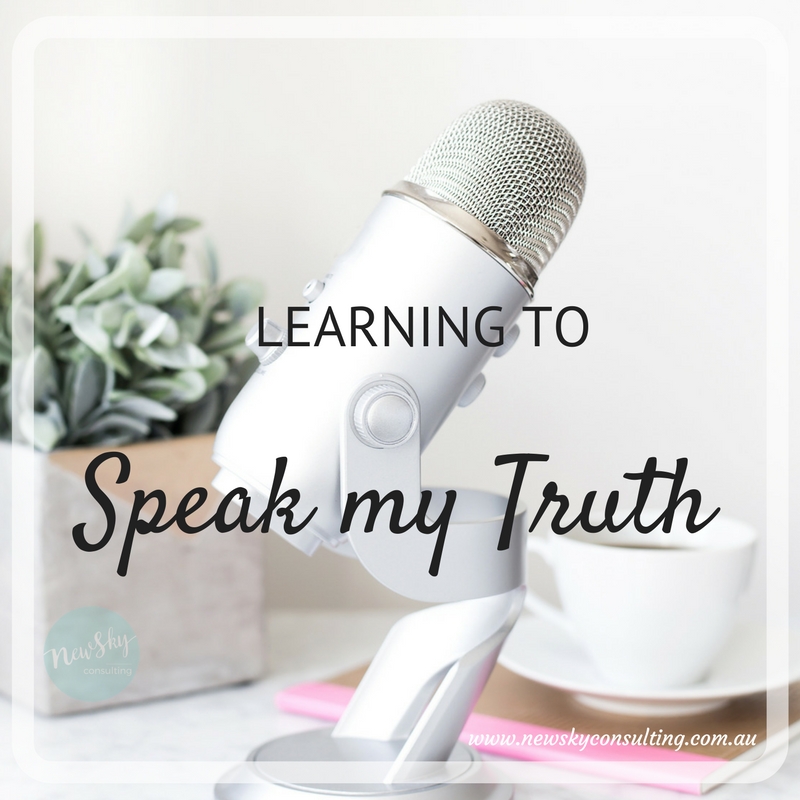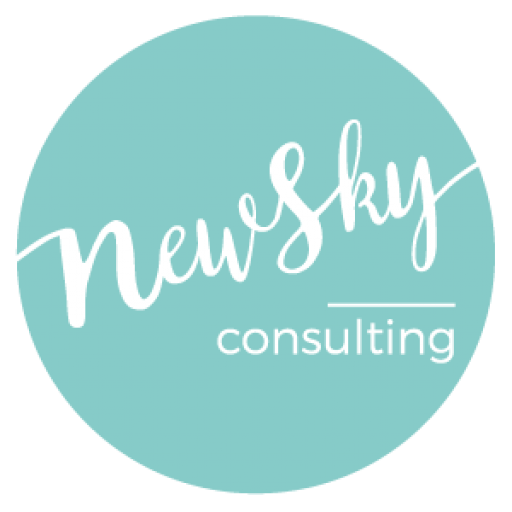
Learning to Speak my Truth
I believe that being a good leader means being able to stand in your truth; and in doing so, inviting others to stand in theirs.
A big part of standing in your truth is being able to speak your truth.
Learning to stand in my truth has required me to dive deep into myself and get crystal clear about who I am, what my values and beliefs are, why I hold those values and beliefs, and why they are important to me. These are the things that help me to then speak my truth.
My values and my “why” make up a playbook of stories that enable me to speak my truth, because they are formed from my very own unique, personal experiences.
You can only speak your truth from your own personal experiences.
Speaking my truth is about sharing my expriences, learnings, and journey so that others may also learn and benefit. In doing so, those around me can decide if they want to stand with me, join my journey in my Not For Profit, or not. It is at this point that in speaking my truth I am enabling others to do the same.
So why can it be so hard to speak your truth?
Could it be that it makes you vulunerable? Open to judgement and criticism? People may challenge you or disagree? Or perhaps it will mean revealing that you don’t have all the answers? So many FEARS.
All these fears cause us to filter or modify our truth – or worse, stop all together.
I remember when I was a young leader, just starting out on my NFP leadership, I found it easy to speak my truth.
Why? Because I was young – I knew my beliefs and values, but I also knew I didn’t know it all. I knew what I wanted to achieve and why, but I also knew I had a lot to learn about how to get there; and most of all I knew that nobody else EXPECTED me to know it all either.
I had that feeling of freedom as a leader that was all about speaking my truth – my story, my why, my experiences, my dreams and I how I wanted to achieve them.
How did this work out for me?
It invited people to join my journey because they too had a similar dream, and they had ideas on how to make them real.
It shared my experiences with others, which helped them to feel empowered enough to also share their hopes, dreams and visions.
It attracted those to me with similar values, goals and beliefs.
It filtered out those people who didn’t agree – they didn’t join my journey. Some of them did judge, ridicule and laugh at me – but I didn’t care – I was focussed on those that I attracted, they were the action takers I needed to make a difference.
As I got older speaking my truth became harder.
You would think that it would have worked in reverse – that I would have gained greater confidence to speak my truth. Afterall, I had more experience, more skills, more qualifications, and I knew lots of good stuff.
No. For some reason I started to feel a sense of expectation from others that I did know it all, that I had all the answers…and that I should.
I had experiences where when I would speak my truth I would be rejected, judged, told I was wrong, strongly ridiculed, and excluded. Granted, Im not one to go with the status quo, or sit in silence when my core values and principles of human rights are in question, so there was a period of time when this happened a lot.
I let it affect me.
As a result my truth speaking got filtered through the lens of these experiences – the fear of more judgement and of not living up to others expectations.
Speaking my truth wasn’t as easy anymore and I became afraid that I wouldn’t meet the expectations of others.
Over time, it ate away at me and my sense of integrity. It wasn’t who I am.
Fortunately, that period of my leadership life didn’t last long and I was able to find my way back to the ease of speaking my truth. I later realised that that period of time in my life was critical to my growth in resilience, innovation and self worth.
I regained my ability to speak my truth by realising that:
- Speaking my truth had nothing to do with being a guru or expert . It is an expression of my values, beliefs and unique experiences.
- When I speak my truth I am inviting others to do the same, and in this they are completely empowered, as am I.
- My truth is my own. Your truth is your own. That’s okay. We don’t have to have the same truth. Its about being real, not right.
- Opinions are not truths. There is a difference.
- I believe in speaking my truth with kindness. There is no need for unnecessary unkindness – the kind of truth saying that is hurtful, rude, disrespectful or mean does not give others the respect of their truth.
I now have the ability to speak my truth in a way that lets me be vulnerable, real and true to myself whilst allowing others to be responsible for their own truth.
When you dare to be vulnerable in this way there is no doubt that you will experience judgement, ridicule, and rejection – I now accept that, and no longer own the responses of others. That is their opinions or truth and they are responsible for their own emotions.
In learning to speak my truth I found great support, resource and personal development in having a mentor. Someone I could talk to about my experiences in speaking my truth, and develop resilience and reflect on my effectiveness. If you are looking for this type of support in your leadership development, I welcome you to make contact with me….

Hi, I'm Katrina!
I HELP LEADERS IN BUSINESS FIND ULTIMATE CLARITY SO THEY CAN LEAD WITH CONFIDENCE, INTEGRITY AND IMPACT.


